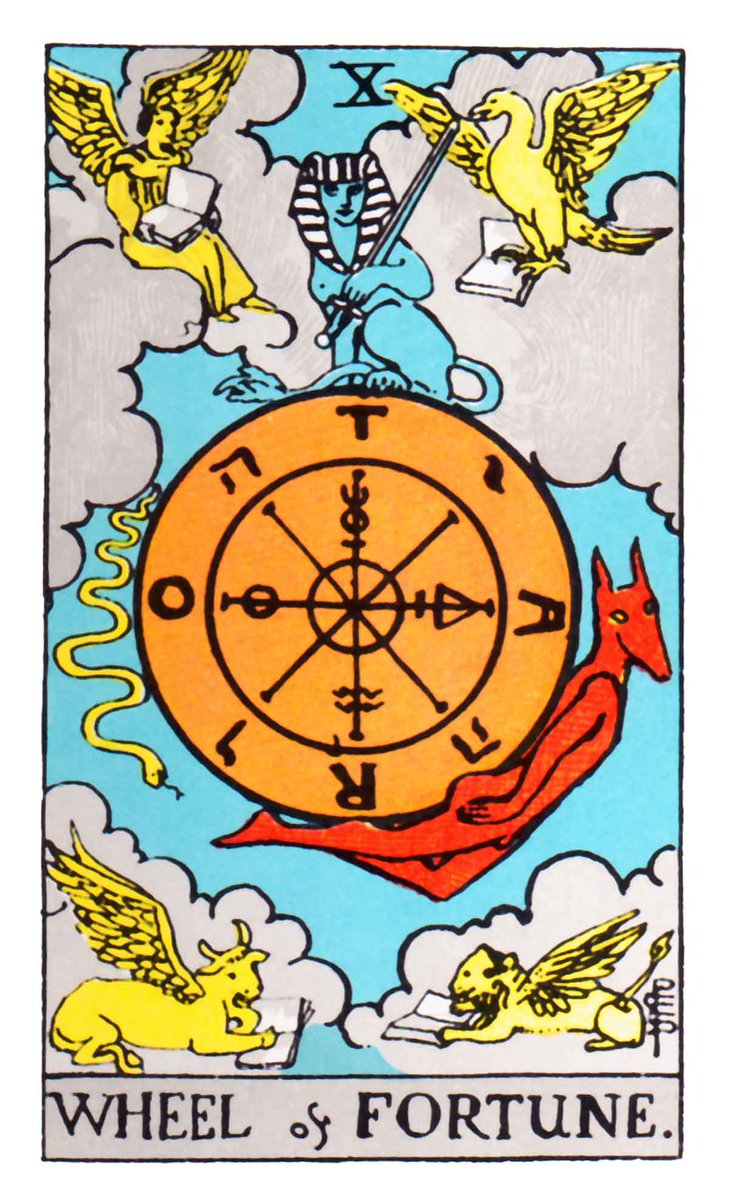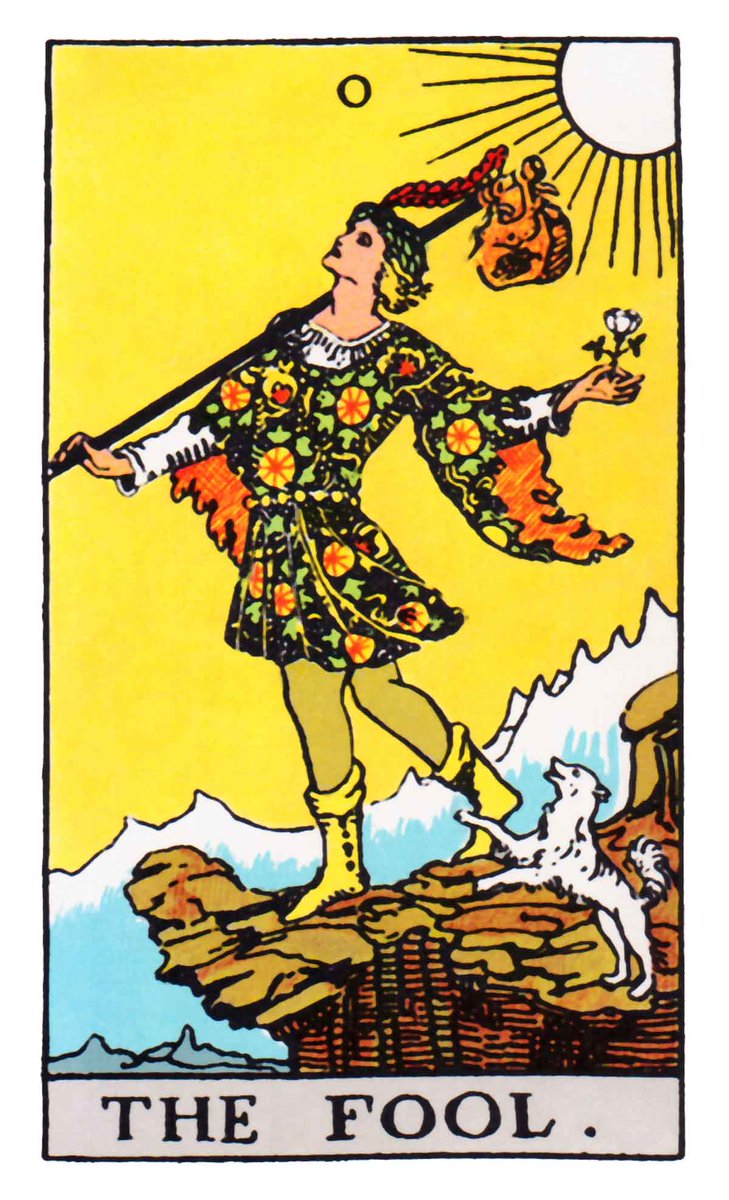This is a good sign. The crazier things get, the more it feels like right is left, up is down, and cats are living with dogs, the more people are going to start paying attention and asking themselves "why?".
We& #39;re reaching peak Clown World. https://twitter.com/DrSteveGoeddeke/status/1250506876422434816">https://twitter.com/DrSteveGo...
We& #39;re reaching peak Clown World. https://twitter.com/DrSteveGoeddeke/status/1250506876422434816">https://twitter.com/DrSteveGo...
@PageauJonathan has a great video on this: https://www.youtube.com/watch?v=MzEwaUCw9Bo">https://www.youtube.com/watch...
I& #39;d highly encourage watching it, but it is a longer one, so I& #39;ll go over some of the critical parts. I won& #39;t be able to go into too much detail here, though, so if you have questions, watch the video.
Pageau is amazing at explaining the symbolism behind stuff like this.
Pageau is amazing at explaining the symbolism behind stuff like this.
Clown World achieved poignancy as a meme because we& #39;ve been living in a carnival society for years now. Carnivals are feasts of meat, of the flesh.
That extends to more than just food. All forms of consumption are present: alcohol, sex, entertainment, etc.
That extends to more than just food. All forms of consumption are present: alcohol, sex, entertainment, etc.
Ultimately, these things all relate strongly to death, and our relationship with it.
They& #39;re all linked with chaos and the outside, and our consumption of that in an effort to ward off death.
They& #39;re all linked with chaos and the outside, and our consumption of that in an effort to ward off death.
Carnivals are festivals that let the powerful energies that these things draw out of people play out their patterns in a more positive manner.
They& #39;re delineated by time, and they often take place before periods of fasting, like Lent.
They& #39;re delineated by time, and they often take place before periods of fasting, like Lent.
Now, the next level of this has to do with a big part of carnival imagery: wheels and circles.
This harkens to the idea of the wheel of fortune, the churning of fate and circumstance beyond our control.
This harkens to the idea of the wheel of fortune, the churning of fate and circumstance beyond our control.
Carnivals are all about acting out patterns of inversion. They are about taking the normal order of things and flipping it on its head.
Inversion festivals celebrate these things because they happen in every day life, and we must learn how to roll with inversion& #39;s punches.
Inversion festivals celebrate these things because they happen in every day life, and we must learn how to roll with inversion& #39;s punches.
One particularly important way carnivals act out inversion is by electing a Fool, a Trickster... a Clown, to be King/Bishop for the day.
They took someone who was at the bottom of the hierarchy (or at least was supposed to act like it) and raised him up to the top.
They took someone who was at the bottom of the hierarchy (or at least was supposed to act like it) and raised him up to the top.
This was probably a lot like modern stand-up comedy. Finding the inconsistencies in the way we act in certain situations, the little tricks being played on us, and turning the ridiculousness of that up to 11.
Comedians are consummate Fools.
Comedians are consummate Fools.
Now, I& #39;m sure none of you doubt the power of humor, but let& #39;s really nail it home.
A great example of a Fool/Trickster is the wizard Merlin. Most of us have forgotten this about him, but Merlin was in fact a very ambiguous character in the Arthurian legends.
A great example of a Fool/Trickster is the wizard Merlin. Most of us have forgotten this about him, but Merlin was in fact a very ambiguous character in the Arthurian legends.
We& #39;ve lost so much of the Christian context around the stories that it& #39;s no longer clear just how much tension surrounds the idea that a wizard could serve the king.
A wizard, who was the son of a dragon! In the Christian tradition, dragons are evil, chaotic beings.
A wizard, who was the son of a dragon! In the Christian tradition, dragons are evil, chaotic beings.
And Merlin& #39;s magical abilities derive from his parentage. By all rights, he should be an enemy of the King and of the Church.
And yet, not only does he serve Arthur, he served Arthur& #39;s father before him, and was instrumental in Arthur& #39;s conception.
And yet, not only does he serve Arthur, he served Arthur& #39;s father before him, and was instrumental in Arthur& #39;s conception.
That& #39;s right, that awkward scene from that Excalibur movie where Uther Pendragon bones someone else& #39;s wife in a suit of armor and knocks her up? You can thank Merlin for that.
Of course, there& #39;s more trickery besides all of that. I don& #39;t have space to go into it all.
Of course, there& #39;s more trickery besides all of that. I don& #39;t have space to go into it all.
So Merlin the Trickster makes a fool out of many people to enable the birth of the great hero of the story, who will be king. He even takes the child into hiding to protect him after his birth.
Strange behavior for a wizard indeed.
Strange behavior for a wizard indeed.
It& #39;s hard to capture the full pattern what an inversion is in a description, and really highlight why inversions are so very, very powerful, and why Fools and laughter can be so very dangerous, so let& #39;s dive into another story featuring Merlin that will do it justice.
Another @PageauJonathan piece! This time, I really will have to insist that you watch the whole video. I thought I could summarize it, but having rewatched it, I realized that that wouldn& #39;t do it justice. https://www.youtube.com/watch?v=w1nzp03Uzpg">https://www.youtube.com/watch...
It& #39;s only about 20 minutes, and it is definitely, definitely worth your time to watch, I promise.
You& #39;re watching, right?
...right? OK then.
You& #39;re watching, right?
...right? OK then.
So, obviously, Merlin isn& #39;t playing the role of the Trickster in this story. In fact, he& #39;s the Fool, the one being tricked!
Funnily enough, many of the qualities that make him a great Trickster make him a magnificent Fool. He is equal parts funny, but also terrifying.
Funnily enough, many of the qualities that make him a great Trickster make him a magnificent Fool. He is equal parts funny, but also terrifying.
He is fooled and captured, and brought before the King, but it is Merlin who has the last laugh.
In the moment of "Peak Merlin", the moment of greatest chaos, laughter, and confusion, the Fool unveils all of the secrets and brings attention down upon foolishness and trickery.
In the moment of "Peak Merlin", the moment of greatest chaos, laughter, and confusion, the Fool unveils all of the secrets and brings attention down upon foolishness and trickery.
And, in the end, in a court where nothing is as it seems, everything is put in its proper place.
The "Merlin Moment" is a powerful, powerful force, and I hope that you can tell that we have one approaching ourselves.
The "Merlin Moment" is a powerful, powerful force, and I hope that you can tell that we have one approaching ourselves.
Do you see our own Fools at work, right now? The chaos they seem to bring with them, but in fact are simply amplifying and exposing?
Have you had moments where you laugh hysterically, lately? I know I have. Very frequently.
Have you had moments where you laugh hysterically, lately? I know I have. Very frequently.
As Hutt said (in a now deleted tweet on a deleted account  https://abs.twimg.com/emoji/v2/... draggable="false" alt="🤬" title="Face with symbols over mouth" aria-label="Emoji: Face with symbols over mouth">), a big part of the current Wojak memes that are popular is the insinuation that if you get mad, you lose.
https://abs.twimg.com/emoji/v2/... draggable="false" alt="🤬" title="Face with symbols over mouth" aria-label="Emoji: Face with symbols over mouth">), a big part of the current Wojak memes that are popular is the insinuation that if you get mad, you lose.
My own spin on this: https://twitter.com/hrestey/status/1247872300931825665?s=20">https://twitter.com/hrestey/s...
My own spin on this: https://twitter.com/hrestey/status/1247872300931825665?s=20">https://twitter.com/hrestey/s...
The key is understanding that we are all, in fact, fools. The question is can you embrace it? Can you be a Fool, instead of just a fool?
Being a Fool allows you to open your mind. https://www.youtube.com/watch?v=Qyx9tHWPiqE&t=2s">https://www.youtube.com/watch...
Being a Fool allows you to open your mind. https://www.youtube.com/watch?v=Qyx9tHWPiqE&t=2s">https://www.youtube.com/watch...
Do you see the ones who are beginning to reveal things?
@Pat_Stedman is unveiling many things on his COVID Periscopes for those of us who are ready for it.
The Fools are everywhere. Are you ready for the Moment?
@Pat_Stedman is unveiling many things on his COVID Periscopes for those of us who are ready for it.
The Fools are everywhere. Are you ready for the Moment?
You asked for this, @XA__Alexander. Enjoy!

 Read on Twitter
Read on Twitter




